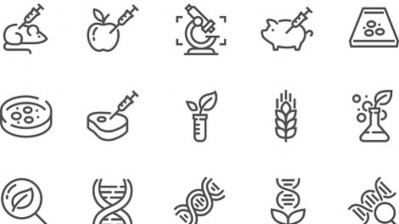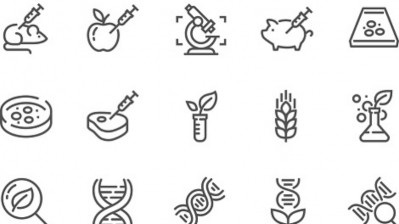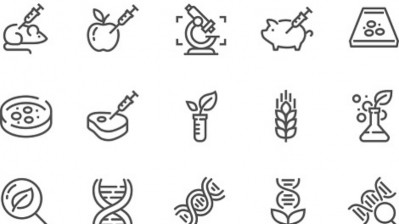NZ 'making progress' in GMO feed research as FSANZ plots food code changes

Over the last two years AgResearch has been working on the development of a genetically modified high metabolisable energy (HME) ryegrass that has been shown in its laboratories to grow up to 50% faster than the conventional crop.
Principal scientist Greg Bryan has also found it can store more energy for better animal growth, be more resistant to drought and produce up to 23% less methane from the dairy livestock it feeds.
Because of New Zealand’s ban on GMO testing outside the lab, the field testing has taken place over the last 18 months in the United States. Bryan recently returned, reporting: “The HME ryegrass has performed well in controlled growing conditions.
“We’re breeding the best novel traits into ryegrass cultivars that will best suit New Zealand growing conditions and we’re also introducing genes into the plants that have simpler genetic patterns that will make future breeding programmes easier.”
AgResearch's models show that the HME grass could boost farm revenues by as much as NZ$900 (US$576) per hectare while at the same time managing nitrogen run-off.
While the results have been encouraging, Bryan urged caution.
“This is complex long-term research and we are working on a species with challenging genetics. It takes several years to breed the HME trait into elite ryegrass varieties currently used by farmers, and very importantly, to test performance every step of the way,” he said.
“Eventually, we will need to seek regulatory approval for HME ryegrass to be grown here in New Zealand for livestock grazing trials. We need to test in New Zealand conditions using New Zealand animals to ultimately confirm or refute the potential environmental and productivity benefits of HME ryegrass.”
The GM debate has been bubbling for some time in New Zealand, which proudly broadcasts its GMO-free, “clean and green” status on the world’s stage as a key selling point for its produce.
That is not to say that the subject is off the table, and it recently came to a head. An expert panel recently suggested New Zealand's regulations surrounding gene technology could be rewritten, on the back of wholesale advances in gene editing since they were drawn up in 2001.
These were last amended in 2003 in line with the Government’s overall policy of proceeding with caution while preserving opportunities.
Ethical obligation
The Royal Society Te Apārangi's gene editing panel in August produced a major paper looking at whether New Zealand's regulatory framework is out of date, sending shockwaves through the establishment.
The report said New Zealand had an "ethical obligation" to contribute to the global knowledge of gene editing technology, adding: “New Zealand cannot leave this to other nations.”
It prompted a number of scientists to call on the government to consider a law change to enable gene editing to help eradicate pests, saying it's time for an overhaul of the regulations if New Zealand wants to eradicate pests by 2050.
Key among these, Peter Dearden, a professor of genetics at Otago University and one of New Zealand’s leading voices in the debate, said that the latest genetic technologies have “potentially great benefits” for the country across many areas, including environmental pest management, healthcare and primary industries, and that the current legislation regulating gene editing is confused and out of date.
He agreed that it is vital to look at the risks and benefits to the country of each proposed use.
"In the past, a lot of genetic modification has been presented in terms of international agriculture companies making money. This should be about us, and about things that we need to do.
"I'd like to see more of my scientist colleagues talking in the media and expressing their opinions, and showing where the risks and benefits actually are. This is a decision that needs to include all New Zealanders,” he added.
“The recently released papers… note there are considerable benefits that gene editing can bring to our lives, particularly in health,” environment minister David Parker said in his response to the study.
“I’m aware there are instances where gene editing techniques could be applied to improve the lives of New Zealanders and agree… that there is a spectrum of genetic modification.”
Meanwhile, Food Standards Australia New Zealand (FSANZ) this week released its Final Report on its review of food derived using new breeding techniques (NBTs).
FSANZ CEO Mark Booth said the Final Report is the result of a significant amount of work by FSANZ, including extensive consultation with stakeholders and the community on whether the current definitions in the Code for genetically modified foods are fit for purpose given recent advancements in genetic technologies.
“The Review found that while there are diverse views in the community about the safety and regulation of food derived from NBTs, many agreed the current definitions are no longer fit for purpose and lack clarity," Mr Booth said.
“Based on these findings, FSANZ will prepare a proposal to amend the definitions in the Code in the New Year.
“The Proposal will look at options to strengthen current regulations and make it clearer which foods should be subject to pre-market safety assessment by FSANZ.
“As with all Proposals to amend the Code, FSANZ will consult with stakeholders and the community to ensure they can have their say.
“We understand this is an area where stakeholders have different views and concerns so communication and engagement will be a big part of our consultation process.
“I'd like to thank all of the stakeholders who contributed to the final review and its recommendations," Mr Booth said.















